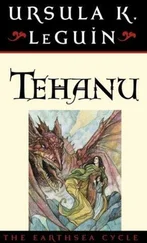It was. He was on a’ trip. A canoe trip. He was paddling a small canoe along a long, narrow, dark, shining stretch of water. The roof and walls were of concrete. It was pretty dark. The long lake, or stream, or sewer, slanted upward visibly. He was paddling against the current, uphill. It was hard work, but the canoe kept sliding forward upriver as silently as the black shining water moved back down. He kept his strokes quiet, the paddle entering the water silent as a knife in butter. His large black-and-pearl electric guitar lay on the forward seat He knew there was somebody behind him, but he didn’t say anything. He wasn’t allowed to say anything or even look around, so if they didn’t keep up that was their lookout, he couldn’t be called responsible. He certainly couldn’t slow down, the current might get hold of his canoe and pull it right out from under him and then where’d he be? He shut his eyes and kept paddling, silent entry, strong stroke. There was no sound behind him. The water made no sound. The cement made no sound. He wondered if he was actually going forward or only hanging still while the black water ran hellbent beneath. He would never get out to daylight. Out, out—
Out. The other didn’t even seem to have noticed that blank had been away on a trip, but just lay there making patterns with pine needles, and presently said, “How is your memory?”
Blank searched it to see if it had improved while he was away. There was less in it than before. The cupboard was bare. There was a lot of junk in the cellars and attics, old toys, nursery rhymes, myths, old wives’ tales, but no nourishment for adults, no least scrap of possession, not a crumb of success. He searched and searched like a starving methodical rat. At last he said uncertainly, “I do remember England.”
“Why surely. I expect you can even remember Omaha.”
“But I mean, I remember being in England.”
“Do you?” The other sat up, scattering pinestraw.
“You do remember being, then! What a pity England sank.”
They were silent again.
“I have lost everything.”
There was a darkness in the other’s eyes and on the eastern edge of the earth plunging down the steepening slopes of night.
“I’m nobody.”
“At least,” said the other, “you know you’re human.”
“Oh, what good’s that? with no name, no sex, no nothing? I might as well be a bristleworm or a tree-sloth!”
“You might as well,” the other agreed, “be Jean-Paul Sartre.”
“I?” said blank, offended. Driven to denial by so nauseous a notion, he stood up and said, “I certainly am not Jean-Paul Sartre. I am myself.” And so saying he found himself to be, in fact, himself; his name was Lewis D. Charles and he knew it as well as he knew his own name. There he was.
The forest was there, root and branch.
The other was, however, gone.
Lewis D. Charles looked in the red eye of the west and the dark eye of the east. He shouted aloud, “Come back! Please come back!”
He had gone at it all wrong, backwards- He had found the wrong name. He turned, and without the least impulse of self-preservation plunged into the pathless forest, casting himself away so that he might find what he had cast away.
Under the trees he forgot his name again at once. He also forgot what he was looking for. What was it he had lost? He went deeper and deeper into shadows, under leaves, eastward, in the forest where nameless tigers burned.




